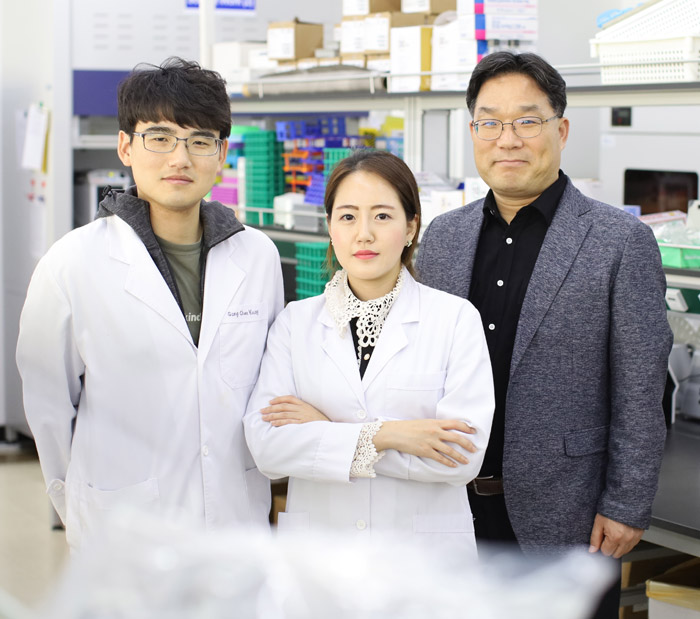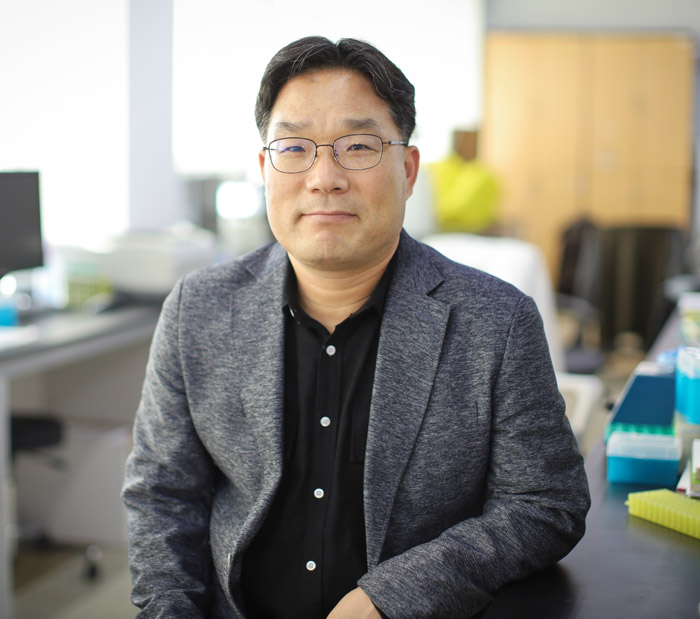Research Stories
Reverting “Cold tumors” into “Hot tumors” by ImmunoBioengineering
Introducing new technologies to overcome limitation of immune checkpoint inhibitors
SKKU Advanced Institute of Nano Technology
Prof.
LIM, YONGTAIK
Prof. Yong Taik Lim’s group of Sungkyunkwan university reported that 2 different immune nano converters that can overcome the limitation of immune checkpoint inhibitors which is related to the 2018 Nobel Prize in Physiology and Medicine (Advanced Materials, September 6 / ACS nano, October 7 Online publication). Although immune checkpoint inhibitors (Anti-CTLA4, Anti-PD-1, and Anti-PD-L1, etc) are highly attracted as promising immunotherapeutic, the response rate is very low, which ranges from approximately 5~30% depending on the target tumors. The reason for this is that various immunosuppressive factors in the tumor microenvironment hindered activation of the therapeutic immune cells.
To overcome this, many pharmaceutical companies around the world are focusing on developing treatment technologies to improve the response rate of immune checkpoint inhibitor.
The key technologies to increase the response rate to immune checkpoint inhibitors are inducing differentiation and proliferation of antigen-specific T cells, which actually kill cancer cells, and controlling immunosuppressive cells (MDSC, TAM, and Treg) and immunosuppressive cytokines (TGF-β and IL-10) in tumor microenvironment. By controlling the function of immunosuppressive cells present in the tumor microenvironment, “cold tumor” that does not respond to immune checkpoint inhibitors can be reverted to “hot tumor” that does respond immune checkpoint inhibitors and activation of therapeutic dendritic cells, T cells and macrophage cells. In this study, the release of resiquimod (R848) was controlled from 2 different immune nano converters to reduce systemic toxicity. The two platform technologies in this study were 1) developed in a implantable disc to prevent recurrence and metastasis of cancer in situations where the cancer is not completely removed by surgery, 2) lyophilizable nanoemulsion that can be applied to cancer immunotherapy as well as infectious diseases. The two newly developed platforms are developed as biocompatible materials that have been approved for human and are highly likely to be clinically approved. Two platform technologies are expected as personalized cancer vaccines that can be loaded personalized cancer drug and neo-antigen from cancer patients to enhanced immune checkpoint inhibitor respond rates through the analysis of various immunological factors in each cancer patients.
Paper title: Designer scaffold with immune nanoconverters for reverting immunosuppression and enhancing immune checkpoint blockade therapy (Advanced Materials, September 6, 2019)
Paper title: Lyophilizable and Multifaceted Toll-Like Receptor 7/8 Agonist-Loaded Nanoemulsion for the Reprogramming of Tumor Microenvironments and Enhanced Cancer Immunotherapy (ACS nano, October 7, 2019)


